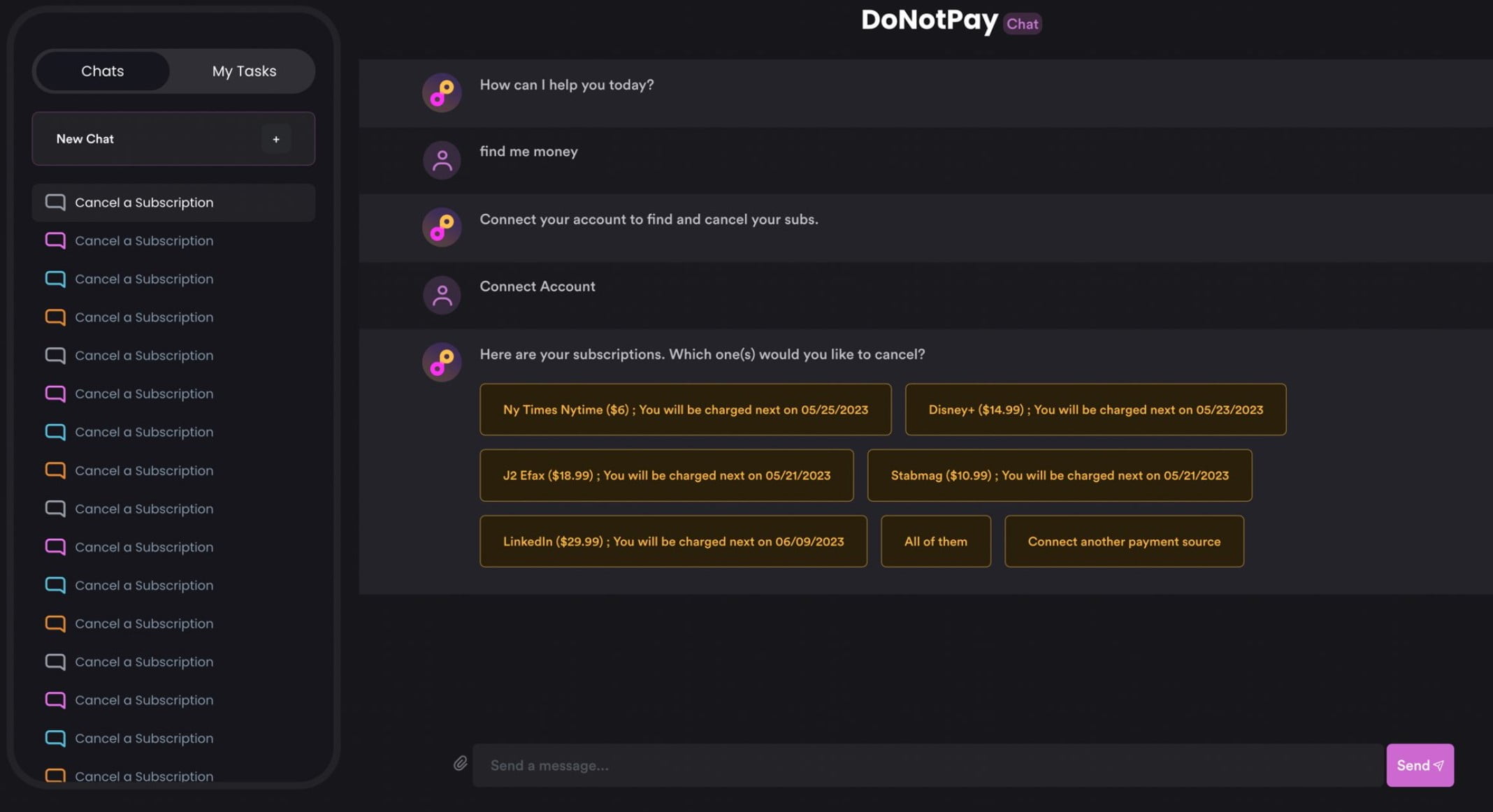How GPT-4 and Auto-GPT could save you money

Large language models could expose businesses and government agencies to an unprecedented flood of appeals, lawsuits, and dismissals - and put an end to uncontrolled or unwanted cash flows.
The DoNotPay platform bills itself as "the world's first robot lawyer". It aims to help users with simple appeals such as parking tickets, canceling auto-renewing subscriptions, or even getting a marriage annulled.
A key feature of the platform is the search for "hidden money". These are payments that you may be entitled to, or that you're paying unnecessarily, but they're not on your radar, or you don't care because they're too small, or it's too much hassle to claim them manually.
This is where GPT-4 comes in with Auto-GPT, which is designed to automate not only the research, but all other actions for a report, claim or even a complaint.
GPT-4 as a personal finance manager
For the latter scenario, Joshua Browder, CEO of DoNotPay, has now integrated GPT-4 with Auto-GPT into a chat system under development for his platform. The system will be available as a ChatGPT plugin on the DoNotPay website and via iMessage.
For his test, Browder gave Auto-GPT access to all of his personal financial information, from bank accounts to credit reports to emails. The only task he gave the system was to "find me money.
The result: GPT-4 has earned about $218 so far as a financial manager. About $81 of that came from "unnecessary subscriptions" that GPT-4 offered to cancel.

For gyms, GPT-4 can even send digitally signed cancellation letters via a U.S. Postal Service API or automatically chat online with customer service representatives and submit a digital cancellation - including the push of a button.
AI finance manager with built-in legal support
But Auto-GPT (use cases) with GPT-4 didn't stop at simple cancellations: according to Browder, it found a bill for about $37 for in-flight Wi-Fi on a flight from London to New York.
The system asked Browder if the Wi-Fi was working properly. When he said no, the system automatically drafted a letter to the airline demanding a refund, citing the law. Using a bot, Browder sent the letter to the airline and received his money back within 48 hours.
When I said: “no,” it immediately drafted a persuasive and firm legal letter to United, requesting a refund. The letter was both legalistic (citing FTC statutes) and convincing.
A bot then sent it to them via their website.
Within 48 hours, United agreed to refund (+$36.99). pic.twitter.com/bI1nBLgt0k
— Joshua Browder (@Joshuabrowder) April 29, 2023
GPT-4 also has negotiating skills, Browder says: It successfully negotiated a $100 refund and a 20 percent discount on his Comcast bill for the next three months due to outages. The system had rejected an initial offer of a $50-per-month discount. GPT-3 was more accommodating, according to Browder.
At DoNotPay, we are noticing a big difference between GPT-3 and 4 in negotiating bills.
We sent a GPT-4 bot to chat with Comcast and get a refund.
When Comcast offered $50, GPT-4 said: “NO. That is not enough. I want $100.” It worked!
GPT-3 never pushed back as hard. pic.twitter.com/eEwNpxjbAx
— Joshua Browder (@Joshuabrowder) April 29, 2023
If automated advice, termination, and appeal systems become widespread, companies and government agencies could face a flood of legally sound appeals, lawsuits, and negotiations. This sounds ominous, but there is an obvious way out of this dilemma: AI systems that are even better at fighting back.
AI News Without the Hype – Curated by Humans
As a THE DECODER subscriber, you get ad-free reading, our weekly AI newsletter, the exclusive "AI Radar" Frontier Report 6× per year, access to comments, and our complete archive.
Subscribe nowAI news without the hype
Curated by humans.
- Over 20 percent launch discount.
- Read without distractions – no Google ads.
- Access to comments and community discussions.
- Weekly AI newsletter.
- 6 times a year: “AI Radar” – deep dives on key AI topics.
- Up to 25 % off on KI Pro online events.
- Access to our full ten-year archive.
- Get the latest AI news from The Decoder.